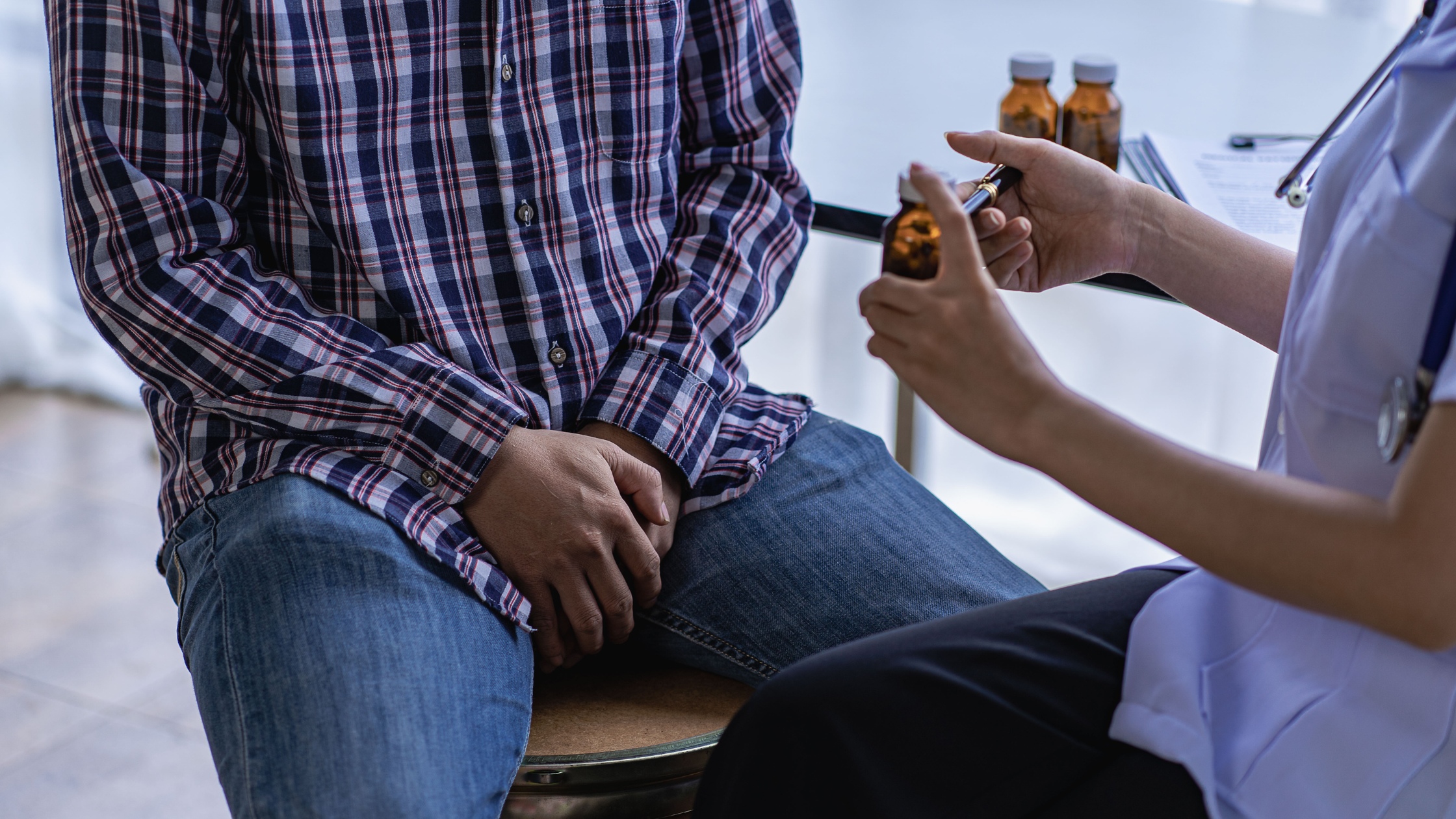What is lung cancer treatment?
Lung cancer treatment refers to the various medical interventions and therapies employed to manage and potentially cure lung cancer, a malignant condition characterized by uncontrolled cell growth in the lungs. The primary treatment options for lung cancer include surgery, radiation therapy, chemotherapy, targeted therapy and immunotherapy. The choice of treatment depends on the type and stage of lung cancer, as well as the patient’s overall health. Surgery involves the removal of cancerous tissue, while radiation therapy uses high-energy beams to destroy cancer cells. Chemotherapy and targeted therapy involve the use of drugs to inhibit cancer cell growth or spread. Immunotherapy enhances the body’s immune system to fight cancer cells. Often, a combination of these treatments is employed to maximize effectiveness.
Who is recommended to undergo lung cancer treatment?
Lung cancer treatment is crucial for several reasons. Firstly, it offers the best chance for disease control and potential cure, particularly when cancer is diagnosed in its early stages. Untreated lung cancer can rapidly progress and metastasize, becoming more challenging to manage. Treatment also helps alleviate symptoms such as coughing, shortness of breath and pain, significantly improving the patient’s quality of life. Furthermore, treatment can extend a patient’s life and enhance their overall well-being. Even in cases where a cure is not possible, palliative care can manage symptoms and improve comfort. Deciding to pursue treatment should be a collaborative decision between the patient and their healthcare team, considering the type and stage of cancer, overall health and individual preferences.
How long does it take to recover from lung cancer treatment?
The recovery time from lung cancer treatment varies significantly depending on several factors, including the type of treatment, the stage of cancer, the patient’s overall health and any potential complications. For surgical interventions, recovery typically involves hospitalization, followed by a period of weeks to months for the patient to regain strength and return to daily activities. Radiation therapy and chemotherapy may have shorter recovery times, but side effects can persist for several weeks. Targeted therapy and immunotherapy can be administered for more extended periods and the duration of recovery depends on the patient’s response to these treatments. In advanced cases of lung cancer, recovery may not involve a full return to normal health but rather focuses on symptom management and improving quality of life. Patients should work closely with their healthcare team to understand the expected recovery timeline for their specific treatment plan.
Are there any risks of lung cancer treatment?
Lung cancer treatments can carry various risks and side effects. Surgery, while often effective, poses risks such as infection, bleeding and damage to nearby organs. Radiation therapy can cause skin irritation, fatigue and damage to healthy lung tissue. Chemotherapy, targeted therapy and immunotherapy may lead to side effects such as nausea, fatigue, hair loss and a weakened immune system. The specific risks and side effects can vary depending on the type and stage of lung cancer and the chosen treatment approach. It’s essential for patients to discuss potential risks with their healthcare team and weigh these against the benefits of treatment. In many cases, the risks can be managed and healthcare providers can offer supportive care to alleviate side effects and enhance the patient’s overall experience during treatment.
How much does lung cancer treatment cost in Turkey?
The cost of lung cancer treatment in Turkey, like in many countries, can vary widely based on several factors. The type of treatment, the stage of cancer, the duration of treatment and the specific healthcare facility all play a role in determining the overall cost. Generally, Turkey is known for its quality healthcare services and medical tourism, which often provide cost-effective options for both domestic and international patients. Public and private healthcare institutions offer various treatment options and prices can be significantly lower than those in many Western countries. However, it’s crucial to note that the cost of treatment may not only include medical expenses but also accommodation, travel and post-treatment care. Health insurance may cover some of the costs, depending on the patient’s coverage and eligibility. Patients should consult with their healthcare providers and insurance companies to understand the full scope of potential expenses and explore available financial assistance options.
FAQ
Is lung cancer treatment a serious surgery?
- Lung cancer treatment can involve various surgical procedures, some of which are indeed considered serious. The seriousness of the surgery depends on several factors, including the type of procedure, the stage of lung cancer and the patient’s overall health. Surgical options may range from minimally invasive procedures like video-assisted thoracoscopic surgery (VATS) to more extensive surgeries like a lobectomy or pneumonectomy, which involve the removal of a portion or the entire lung. While all surgeries carry inherent risks, major lung cancer surgeries are considered serious due to their potential impact on lung function and the body as a whole.
Is lung cancer treatment painful?
- Lung cancer treatment can be associated with various forms of pain and discomfort, but the severity and type of pain often depend on the specific treatment modality and individual patient experiences. Surgery, for example, can cause post-operative pain at the incision site, but this pain is typically managed with medication and gradually improves as healing occurs. Radiation therapy and chemotherapy may result in side effects like skin irritation, fatigue and nausea, which can be uncomfortable but are manageable with supportive care. While lung cancer itself can cause symptoms like chest pain or shortness of breath, addressing the cancer through treatment can alleviate this pain over time.
What is the best age to get lung cancer treatment?
- There is no single “best age” for lung cancer treatment, as the decision to pursue treatment depends on factors such as the type and stage of cancer, overall health and individual patient preferences. Lung cancer can affect individuals at any age, and treatment plans are tailored to the specific circumstances of each case. Younger patients may be better equipped to tolerate aggressive treatments, while older patients may require more conservative approaches. Ultimately, the best age to undergo lung cancer treatment is determined by a collaborative decision between the patient and their healthcare team, taking into account the potential benefits and risks of treatment.
How long should I take off work after lung cancer treatment?
- The amount of time a person should take off work after lung cancer treatment can vary widely depending on the type of treatment, the individual’s job and their overall health. Surgical procedures often require the most extended recovery time, with some patients needing several weeks to several months off work. For less invasive treatments like radiation therapy or chemotherapy, individuals may need shorter periods of leave, but this can vary depending on the severity of side effects. In cases where lung cancer treatment is ongoing, individuals may need to make work accommodations or take intermittent leave.
How long after lung cancer treatment can I fly?
The timing for resuming air travel after lung cancer treatment depends on several factors, including the type of treatment received, any lingering side effects and individual health. In general, there is no strict rule against flying after lung cancer treatment, but it’s essential to consider some guidelines.
- Surgery: If you’ve undergone lung surgery, you should wait until your healthcare provider clears you for travel, which typically takes several weeks to a few months. This waiting period allows your surgical incisions to heal and your lung function to stabilize.
- Radiation and Chemotherapy: For those who’ve received radiation therapy or chemotherapy, flying can often resume once the immediate side effects subside.
- Immunotherapy or Targeted Therapy: These treatments may not have specific restrictions on air travel, but it’s vital to consult with your healthcare team.
Can you get lung cancer treatment twice?
It is possible to undergo lung cancer treatment more than once if the cancer recurs or if a new lung cancer develops. Whether a patient can receive treatment for lung cancer a second time depends on several factors:
- Type of Cancer: The specific type of lung cancer and its characteristics play a significant role. Some types of lung cancer may respond well to retreatment, while others may be more resistant.
- Stage of Cancer: The stage at which the cancer is detected influences the treatment approach. Early-stage cancer may allow for additional treatment options.
- Overall Health: The patient’s general health, including their ability to tolerate treatment and manage potential side effects, is a crucial consideration.
- Treatment History: The type of treatment previously received and its success or lack thereof can impact the options for retreatment.
How to relieve pain after lung cancer treatment?
Pain management after lung cancer treatment is a crucial aspect of care to ensure the patient’s comfort and well-being. The type and severity of pain can vary depending on the specific treatment and individual factors. Here are some strategies to help relieve pain:
- Medication: Your healthcare provider can prescribe pain medications, including over-the-counter options and more potent prescription drugs, to manage pain effectively. It’s essential to take these medications as directed.
- Complementary Therapies: Techniques such as acupuncture, massage and relaxation exercises can help alleviate pain and reduce stress. Consult with your healthcare team before trying these approaches.
- Physical Therapy: Physical therapists can assist with exercises to improve mobility and reduce pain, especially after surgery or if treatment has caused muscle weakness.
- Breathing Exercises: Deep breathing and relaxation exercises can reduce chest pain and improve lung function.
- Supportive Care: Consult with your healthcare team about addressing treatment-related side effects, such as nausea, fatigue or skin irritation, which can indirectly contribute to pain.











